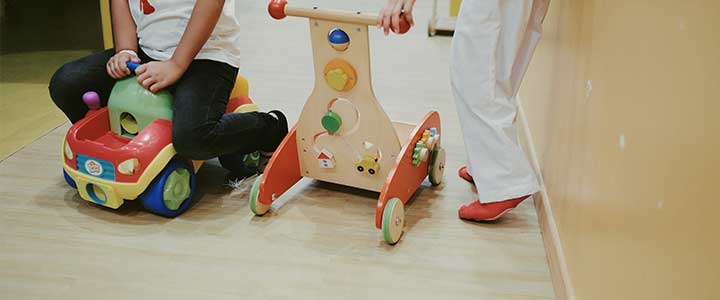Join our August intake for CAE’s Diploma in Counselling Psychology!
Read moreAug 2024 Intake: Counselling Psychology


Join our August intake for CAE’s Diploma in Counselling Psychology!
Read more
Play Therapy is an intervention strategy to help children safely communicate and express their feelings and thoughts naturally in order to deal with trauma, loss, delayed development, and other developmental and social issues. Play therapy is fun, free-flowing, non-directed, and effective.
Play therapy allows people who are experiencing emotional or behavioural issues to open up their emotions in the safe space of the ‘playroom’, where they are allowed to face their thoughts and emotions nonverbally.

Stress is something we all have to deal with. It is our body’s signal to be wary of danger or threats. Your heart rate may increase, your palms may get sweaty, your senses get more acute, and you gain more energy as hormones flood your body in preparation to deal with the looming problem or threat. Stress is a natural.
Read more
Good listening is empathic listening; defined as a way of listening and responding to another person that improves mutual understanding and trust. It allows us to receive and accurately interpret the speaker’s message, hence able to provide an appropriate response. This is an important skill to master for both personal and professional interactions. When an individual feels understood, an emotional burden is lifted, stress and defensiveness will reduce. Hence as an empathic listener, you empower the speaker to an increased self-esteem and clarity.
Empathic listening comprises two crucial aspects – Active and Reflective Listening.
Active listening is mindful hearing and genuine effort to comprehend what’s spoken by the other. Attentiveness is the key factor. Reflective listening focuses on reflecting the speaker’s words and feelings by giving feedback through a “paraphrased rendition”; the interpretation confirms and assures that the speaker is heard and understood.
5 TIPS TO INCREASE YOUR LISTENING ABILITIES:
Be Fully In The Moment – Paying attention not just to the words but tone, facial expressions and body language for cues on how they are really feeling. Good eye contact is necessary to convey engagement.
Put Yourself In Their Shoes – Imagine yourself in their situation. Empathy is the ability to project oneself into the personality of another person in order to better understand his/ her emotions.
Do Not Interrupt – Don’t dominate the conversation or impose your ideas on the person. Encourage them to express themselves more instead.
Paraphrase Main Points & Restate them – Echoing what the speaker said allows needed clarification and also assures the speaker that he/she is understood and heard correctly.
Adopt An Attitude of Unconditional Regard – Unconditional positive regard is accepting the speaker totally for who he or she is without evaluating or censoring; and disapproving of particular feelings, actions or characteristics. It liberates the speaker to express him or herself freely.
The ability to listen is one of the most crucial skills of a counsellor. When you are able to truly listen, you learn to empathise, and you learn to sympathise with people around you. It changes the way you perceive the world and informs the way you are able to help.
Join us at College of Allied Educators to learn more about the limits of your abilities and discover how you can help others overcome their doubts, fears, disagreements, and challenges in order to build a happier, more meaningful life.
CALL US at 6533-0031 EMAIL your enquiry to ENQUIRY@ICAE.EDU.SG
or Register for your free preview below:

Have you ever caught yourself or someone else saying, “Will my child grow out of it?” Many times, adults and educators tend to think that the child may have behaviour issues. The common signs that lead to that conclusion are:
Read more
It may not seem like one should have to tell you how to find your happiness, but sometimes you do have to be pointed in the right direction to find what makes you happy so you can go for it. The big question is: What makes you happy?
Is it just a feeling inside you something else?
Read more
We seem to know at least someone that everyone goes to for advice. It’s usually a friend but sometimes it may be a sibling, mother, or father. These people are the ones that you always feel naturally drawn to when you have some concern or need to unburden yourself with the worries of the day.
Read more
We don’t often attribute meaning to how children play or even what they decide to play with. They seem to always have their preference for the things that they do. Especially at a younger age, they may not even be able to tell us why specifically they do certain things. Especially in early childhood trauma cases, the child may indeed not talk much at all and instead opt to do their thing in silence.
Read more
The demand for educators who are equipped with the necessary skills and knowledge to create an inclusive environment for their students has never been higher.
Inclusive education is education that makes consideration for and understands the needs of students’ differences and diversity whether those are physical, emotional, social, or academic. Students, regardless of any challenges they may have, should be placed in appropriate education classes so they are able to receive high-quality instruction, intervention, and support that enable them to succeed. Students should feel welcomed and comfortable in the environment and are supported throughout their education.
Read more
When people think about loneliness, some may think of someone who is alone all the time; but being lonely and being alone are different things. Being alone is a physical state where a person could be by themselves a lot of the time.
This doesn’t necessarily mean they are lonely. Some people have less need to be around other people and are quite comfortable to be themselves, and even to do things by themselves. Being lonely is a feeling that you need people but for whatever reason, don’t have access to them. It is a feeling of isolation. Sometimes being alone can also be lonely. There are different types of loneliness that you can face:
Read more